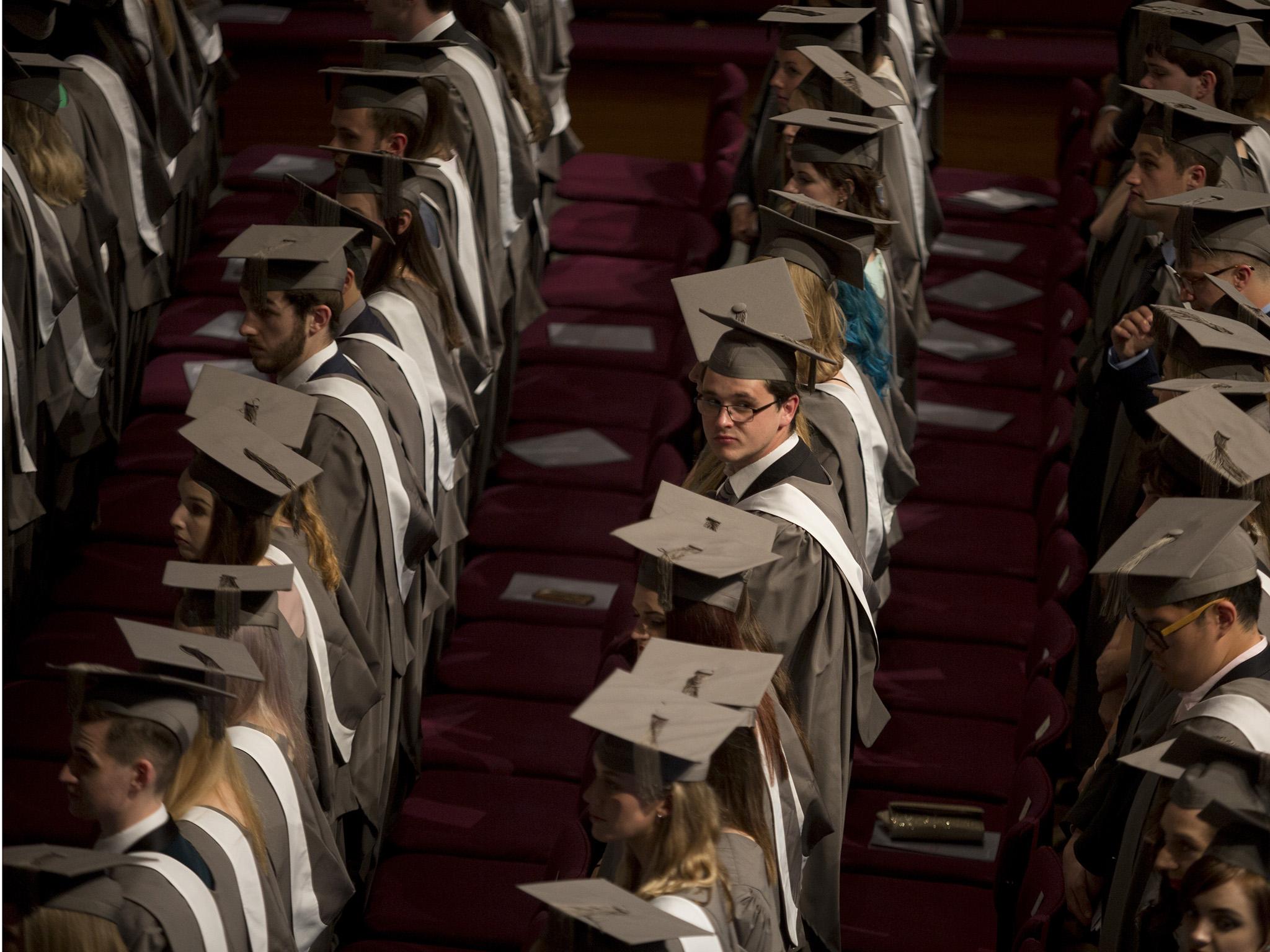Student loan interest rates 'absurd' and 'grossly unfair', says Treasury Committee
Many graduates have little prospect of ever repaying their debt

Your support helps us to tell the story
From reproductive rights to climate change to Big Tech, The Independent is on the ground when the story is developing. Whether it's investigating the financials of Elon Musk's pro-Trump PAC or producing our latest documentary, 'The A Word', which shines a light on the American women fighting for reproductive rights, we know how important it is to parse out the facts from the messaging.
At such a critical moment in US history, we need reporters on the ground. Your donation allows us to keep sending journalists to speak to both sides of the story.
The Independent is trusted by Americans across the entire political spectrum. And unlike many other quality news outlets, we choose not to lock Americans out of our reporting and analysis with paywalls. We believe quality journalism should be available to everyone, paid for by those who can afford it.
Your support makes all the difference.Nicky Morgan, the former education secretary, has lambasted the government for its “absurd” use of a “flawed” measure to work out interest rates on student loans.
Using the retail price index (RPI) “appears grossly unfair”, said Ms Morgan, who chairs the Commons Treasury Committee.
The RPI generally gives a higher rate of inflation than the consumer price index (CPI), meaning former students repay more on their loans than they would under CPI.
Ms Morgan questioned the fact that the government often uses the lower measure for formulae affecting money it has to pay out such as pensions and benefits, but the higher one for money people have to pay in such as student loans.
This approach has left many students with high interest payments on debts of tens of thousands of pounds, which they have little hope of ever paying off.
Last month the government announced it would hike the maximum interest rate on student loans to 6.3 per cent from this autumn, following a rise in RPI. The rate is significantly higher than on many unsecured personal loans available from high street banks.
“As RPI has been de-designated as a national statistic, the committee has urged the government to abandon its use to calculate student loan interest rates in favour of CPI,” Ms Morgan said.
“In its response to the committee’s report, the Department for Education acknowledged the flaws of RPI, but argued that continuing its use has provided consistency over time.
“Continuing to use a measure that it readily admits is flawed, on the grounds of consistency, is absurd; it guarantees that student loan interest rates will be consistently flawed.”
The comments came as the Treasury Committee published the government’s response to its highly critical report on the current student loans system.
The government said: “RPI has always been used for calculating interest on student loans, providing consistency over time.”
It added: “The flaws in the RPI measure of inflation are well understood, and the Office for National Statistics have delivered a substantial programme of work to improve the way they measure inflation over the last two years.
“The review of post-18 education and funding will look at how students and graduates contribute to the cost of their studies, including the level, terms and duration of their contribution.
“It is now for the independent panel to consider the issues raised within the terms of reference in their report to government. The government cannot prejudge the findings of the panel or outcomes of the review.”
A study last year by the Institute for Fiscal Studies found that three-quarters of students will never clear their loans and that graduates from low-income families finish their studies with the highest debt of more than £57,000 on average.
Join our commenting forum
Join thought-provoking conversations, follow other Independent readers and see their replies
Comments